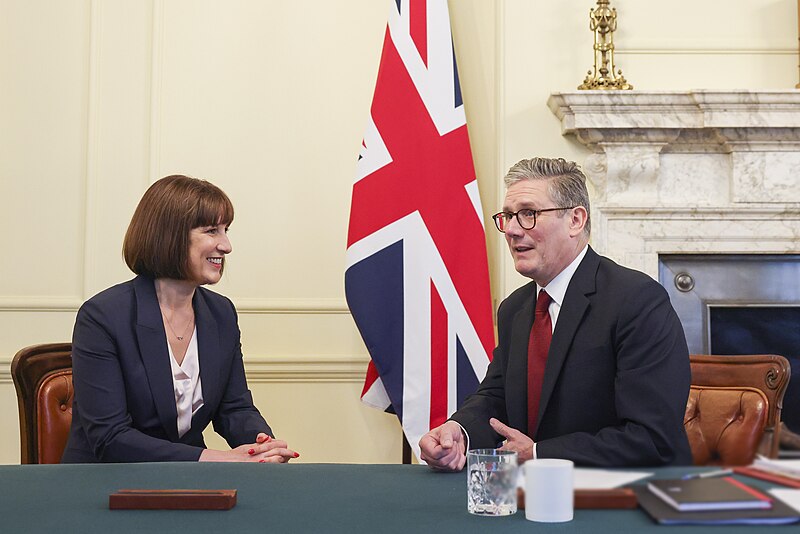
Banking stocks in the UK dropped on Friday after speculation grew that Chancellor Rachel Reeves could hit the sector with a new windfall tax in her upcoming autumn budget.
The sell-off was sparked by a report from the Institute for Public Policy Research (IPPR), a leading think tank, which argued that banks should shoulder some of the costs from the Bank of England’s money-printing programme during the pandemic.
By mid-morning, NatWest and Lloyds had fallen more than 4%, while Barclays slipped over 3%. HSBC and Standard Chartered also dipped, though by a more modest 1.5%. The declines made banks the biggest drag on the FTSE 100.
Why banks are in the spotlight
The IPPR said the Government should introduce a temporary levy on banks’ profits, claiming it could raise up to £8 billion a year for public services.
The proposal is linked to the fallout from quantitative easing (QE), the Bank of England’s huge bond-buying scheme used to support the economy. While the policy initially made money, rising interest rates since 2021 mean it is now costing taxpayers an estimated £22 billion a year.
According to the think tank, this setup has unfairly boosted bank profits and shareholder payouts at a time when households are still under severe cost-of-living pressures.
To fix this, the IPPR suggested a “QE reserves income levy” — a measure it compared to Margaret Thatcher’s 1981 deposit tax on banks. It also urged the Bank of England to slow down its bond sales (quantitative tightening), which it said could save another £12 billion annually. Together, the two steps could create more than £100 billion of fiscal headroom over the course of this Parliament.
What it would mean for banks
The levy would be temporary, ending once QE-related bonds are off the Bank of England’s balance sheet or when interest rates fall back to 2%. Smaller banks would be exempt, and the think tank argued that the measure would have little impact on the competitiveness of Britain’s banking sector.
Still, the prospect of higher taxes spooked investors, with City traders quick to offload banking stocks.
Government response
The Treasury did not directly address the IPPR’s proposals but stressed that its focus remains on growing the economy rather than leaning heavily on tax rises.
“As set out in the plan for change, the best way to strengthen public finances is by growing the economy,” a spokesperson said. “Changes to tax and spend policy are not the only ways of doing this, as seen with our planning reforms, which are expected to grow the economy by £6.8 billion and cut borrowing by £3.4 billion.”
They also noted that decisions on monetary policy and asset sales sit with the Bank of England’s independent Monetary Policy Committee. Photo by Simon Dawson / No 10 Downing Street, Wikimedia commons.




































